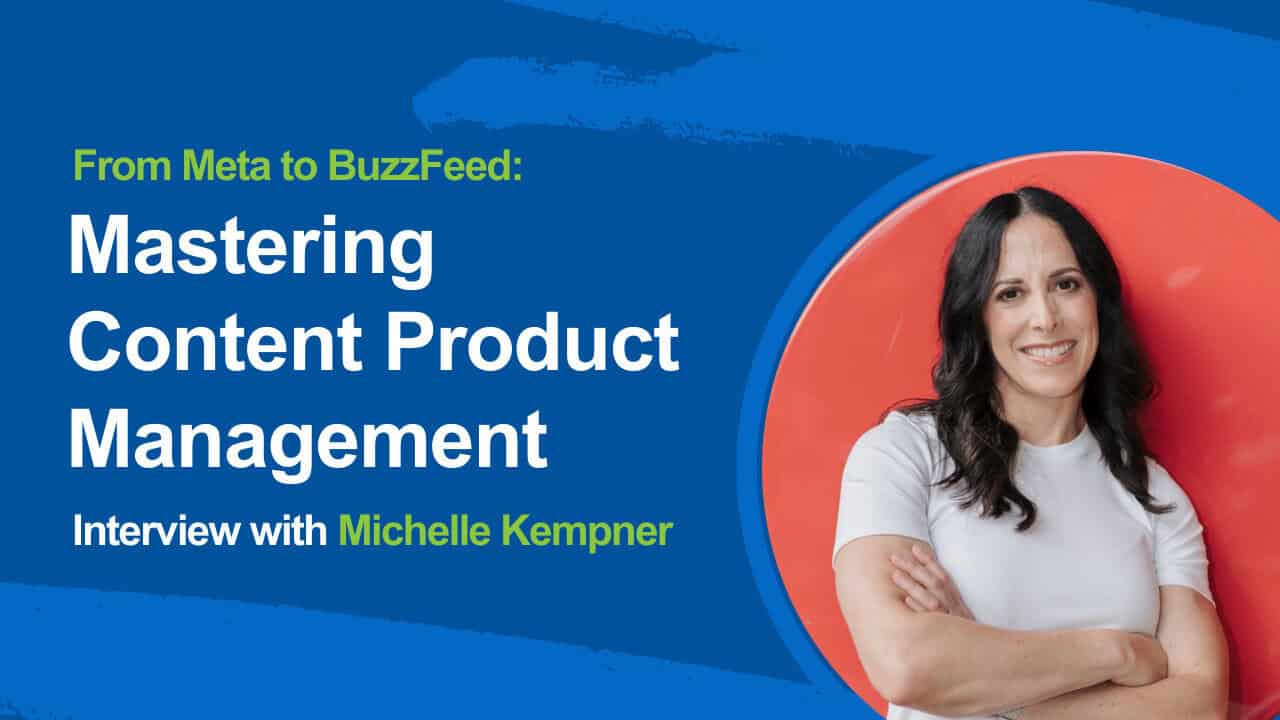Few leaders have navigated the complexities and dynamic shifts in content product management as adeptly as Michelle Kempner. With a robust product background, she has been instrumental in bridging the gap between users and creators, ensuring that top-tier content finds its audience.
From her pioneering work at Meta, where she integrated human review into machine learning systems across major platforms like Facebook, Instagram, and Threads, to her transformative role leading BuzzFeed to #1 in social video, Michelle has consistently driven innovation and growth.
In this interview, she shares her insights on the nuances of product management in content publishing, the emerging opportunities in the industry, and the essential qualities that make a successful product leader in this space.
How does content product management in a publishing business differ from product management of a more traditional, engineered SaaS product?
Content publishing products require a different mindset, especially in metrics. High views don’t always mean high quality, and exploiting algorithms with low-quality content can degrade user experience and brand value.
The right metrics directly align to business goals. The wrong metrics lead teams astray as they optimize for a less important number, or avoid changes that could harm a tracked KPI even when the net change will be positive.
Treat publishing as a dynamic ecosystem. What’s popular today may be irrelevant tomorrow, so be cautious about long-term investment in short-term trends. Performance varies by platform; success on TikTok doesn’t guarantee success on YouTube Shorts. Platforms need to understand these dynamics for product content strategies to produce good outcomes. Creators need to adjust both content and publishing strategy to fit each platform, and this can’t always be done by re-editing the same content per platform. Customization is essential.
What are the greatest opportunities you see unfolding in the content publishing industry, and what should a CEO or CPO think about to remain competitive in the products they deliver to their customers?
Human judgment combined with artificial intelligence is the key to success. Too often, company leaders shift too far to one extreme or the other. At any given moment in time, there will be something that humans excel at and other things for which AI is more suited.
When a CEO hires a scale-up level product leader (CPO or VP Product), how might they evaluate candidates who have led content product management teams and businesses? What makes one candidate more successful than another?
Domain expertise is critical. Seek strategic thinkers who understand the content ecosystem. Look for data-driven decision-makers who balance immediate wins with long-term growth. Prioritize cross-platform expertise. Creativity, adaptability, and collaboration skills are what separate excellent product content leaders from the rest. Ask for evidence of each.
Why does content expertise matter when leading content product management teams?
Product Managers are trained to be generalists. A good PM is a systems thinker with a process toolkit they believe can be applied to any type of project.
This approach tends to fail when applied to content. Product leaders without expertise in this field often expect people’s tastes to be more structured than they really are and don’t invest enough in multi-dimensional taxonomies. In other words, interest in basketball can mean trick shots, NBA highlights, or women’s NCAA games, but not necessarily all three. Content intuition is a learned skill, not “you know it when you see it.”
Similarly, content product management teams can and must move much faster than most other product teams. Product leaders used to the slower pace of software development often struggle with an environment where success may require rapidly shifting production on a daily or weekly basis to take full advantage of emerging trends.
–
Michelle Kempner’s insights underscore the critical differences and unique challenges inherent in managing content-focused product teams versus traditional SaaS products. Her experience highlights the importance of adaptability, cross-platform expertise, and a deep understanding of the content ecosystem.
For CEOs and CPOs, her advice offers a valuable roadmap for identifying and nurturing product talent that can thrive in the fast-paced, constantly shifting world of digital content.
